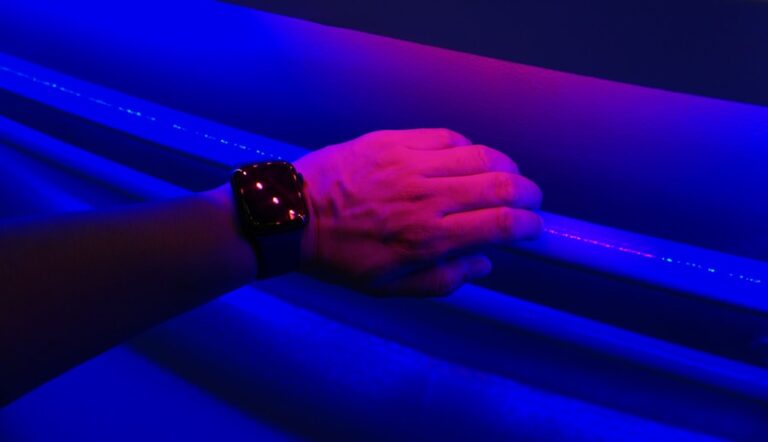Breaking Down the Myths and Misconceptions of Pursuing a Digital Art Degree
There is a common misconception that pursuing a career in digital art limits one’s career opportunities. Many people believe that digital art is only applicable in a few industries, such as graphic design or animation, and that there are limited job prospects for digital artists. However, this couldn’t be further from the truth. In reality, the demand for digital artists is growing across a wide range of industries, including advertising, marketing, film and television, video game design, web design, and more. With the increasing reliance on digital media and technology in today’s society, the need for skilled digital artists is only expected to rise. Digital art offers a diverse range of career paths, from creating visual effects for blockbuster movies to designing user interfaces for mobile apps. The possibilities are endless for those with a passion for digital art and a willingness to explore different industries.
Furthermore, the rise of e-commerce and online platforms has created new opportunities for digital artists to showcase and sell their work. With the ability to reach a global audience through the internet, digital artists can build their own brands and businesses, selling their artwork as prints, merchandise, or digital downloads. This opens up a whole new world of entrepreneurial opportunities for digital artists, allowing them to create their own career paths and reach a wide audience without the limitations of traditional art galleries or exhibitions. The misconception of limited career opportunities in digital art is simply not true, and those with a passion for creativity and technology can find success in a variety of industries.
Debunking the Myth of Digital Art Degrees Being Less Valuable than Traditional Art Degrees
Another common misconception about pursuing a degree in digital art is that it is less valuable than a traditional art degree. Some people believe that digital art is not as respected or prestigious as traditional art forms such as painting or sculpture, and that a degree in digital art is somehow less legitimate. However, this belief is outdated and fails to recognize the significant impact that digital art has had on the art world in recent years. Digital art has become an integral part of contemporary art practices, with many renowned artists incorporating digital tools and techniques into their work. As a result, the value and relevance of a degree in digital art have only increased, with many universities and art institutions offering specialized programs in digital art and design.
In addition, the demand for digital artists with specialized skills in areas such as 3D modeling, animation, and interactive media has created a need for formal education and training in these fields. A degree in digital art provides students with the technical skills and creative knowledge needed to succeed in the rapidly evolving digital landscape. Furthermore, many employers in creative industries recognize the value of digital art degrees and actively seek out graduates with expertise in digital media and technology. The myth of digital art degrees being less valuable than traditional art degrees is simply not true, and those who pursue a degree in digital art can find fulfilling and lucrative careers in a variety of fields.
The Reality of the Technological Skills Gained in a Digital Art Degree Program
One of the most significant benefits of pursuing a degree in digital art is the acquisition of valuable technological skills that are highly sought after in today’s job market. Digital art degree programs provide students with hands-on experience using industry-standard software and tools, such as Adobe Creative Suite, Autodesk Maya, ZBrush, and more. These programs also teach students how to use cutting-edge technology to create stunning visual effects, animations, and interactive media. As a result, graduates of digital art programs are well-equipped to meet the demands of modern industries that rely on digital media and technology.
Furthermore, the technological skills gained in a digital art degree program are transferable across a wide range of industries, giving graduates the flexibility to pursue diverse career paths. Whether it’s creating virtual reality experiences for gaming companies or designing user interfaces for tech startups, the technical expertise gained through a digital art degree program opens up numerous opportunities for graduates. Additionally, the ability to adapt to new technologies and software is a valuable skill that is highly prized by employers in today’s fast-paced and ever-changing digital landscape. The reality is that a degree in digital art provides students with practical skills that are in high demand across various industries, making it a valuable investment in one’s future career.
Addressing the Misconception of Digital Art Degrees Being Easy or “Not Real Art”
Another common misconception about pursuing a degree in digital art is that it is somehow easier or less legitimate than traditional art degrees. Some people believe that working with digital tools and software is less challenging or requires less skill than traditional art forms such as painting or sculpture. However, this belief fails to recognize the complexity and technical expertise required to create compelling digital artwork. Digital artists must possess a deep understanding of color theory, composition, perspective, and other fundamental principles of art and design in order to create visually striking and meaningful work.
Furthermore, working with digital tools often requires a high level of technical proficiency and problem-solving skills. Digital artists must be adept at using complex software and navigating intricate workflows to bring their creative visions to life. Additionally, the ability to adapt to new technologies and stay abreast of industry trends is essential for success in the field of digital art. The misconception that digital art degrees are easy or “not real art” is simply unfounded, as it overlooks the rigorous training and dedication required to excel in this rapidly evolving field.
The Importance of Industry Connections and Networking in Digital Art Degree Programs
In addition to gaining technical skills and creative knowledge, pursuing a degree in digital art provides students with valuable opportunities to build industry connections and network with professionals in their field. Many digital art degree programs offer internships, mentorship programs, and networking events that allow students to connect with industry professionals and gain real-world experience. These connections can be invaluable for students seeking employment opportunities after graduation or looking to establish themselves as freelance artists or entrepreneurs.
Furthermore, building a strong network of industry contacts can provide students with access to job opportunities, collaborations, and mentorship that can help them advance their careers. Whether it’s connecting with potential employers at industry events or collaborating with fellow students on creative projects, the relationships formed during a digital art degree program can have a lasting impact on one’s professional development. The importance of industry connections and networking cannot be overstated, as they can open doors to new opportunities and help students navigate the competitive landscape of the creative industries.
The Misconception of Limited Creativity in Digital Art
Another misconception about pursuing a degree in digital art is that it limits one’s creativity or artistic expression. Some people believe that working with digital tools and technology restricts artistic freedom or results in work that lacks authenticity or emotional depth. However, this belief fails to recognize the boundless creative potential of digital art and the innovative ways in which artists are using technology to push the boundaries of artistic expression.
In reality, digital art offers artists an expansive toolkit for exploring new ideas and experimenting with different mediums and techniques. From creating immersive virtual reality experiences to designing interactive installations, digital artists have the ability to engage audiences in unique and impactful ways. Additionally, advancements in technology have made it possible for artists to collaborate across disciplines and create work that transcends traditional boundaries. The misconception of limited creativity in digital art is simply not true, as it overlooks the endless possibilities for artistic exploration and innovation that technology affords.
Understanding the Potential for Financial Success with a Digital Art Degree
Finally, it’s important to address the potential for financial success that comes with pursuing a degree in digital art. While some may believe that careers in creative fields are financially unstable or lack earning potential, the reality is that skilled digital artists are in high demand across various industries and can command competitive salaries. Whether it’s working as a visual effects artist for a major film studio or freelancing as a concept artist for video game companies, there are numerous opportunities for financial success in the field of digital art.
Furthermore, the rise of e-commerce and online platforms has created new avenues for digital artists to monetize their work and build sustainable careers as independent creators. With the ability to sell prints, merchandise, or digital downloads of their artwork online, digital artists can generate passive income streams and reach global audiences without relying on traditional gallery representation. Additionally, those with entrepreneurial aspirations can leverage their technical skills and creative expertise to launch their own businesses or start creative ventures in emerging industries such as virtual reality or augmented reality. The potential for financial success with a degree in digital art is significant, and those who are passionate about creativity and technology can find fulfilling careers that offer both artistic fulfillment and financial stability.
In conclusion, pursuing a degree in digital art offers numerous opportunities for creative expression, technical skill development, industry connections, financial success, and career growth. The misconceptions surrounding limited career opportunities, the value of digital art degrees, technological skills gained through these programs, creativity limitations, and financial success are simply unfounded. As technology continues to play an increasingly integral role in our society, the demand for skilled digital artists will only continue to grow across various industries. Those who are passionate about creativity and technology should not hesitate to pursue a degree in digital art, as it offers a wealth of possibilities for personal and professional fulfillment.







